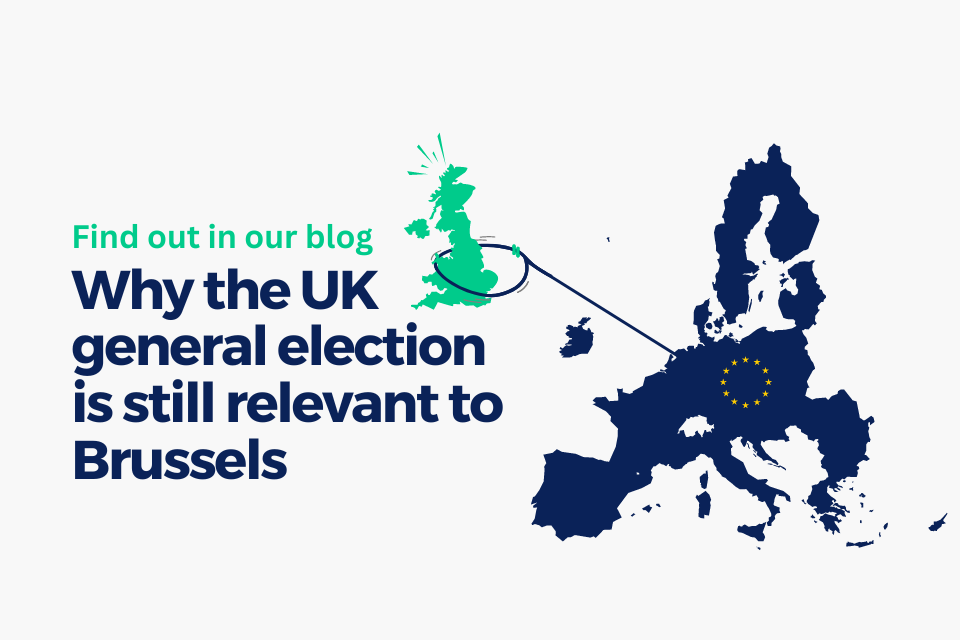Why the UK general election is still relevant to Brussels

Introduction
The aftermath of Brexit has left many in Brussels and London fatigued by discussions about the UK-EU relationship. The UK’s current election campaign has similarly seen political parties avoiding the topic, focusing instead on other domestic issues. However, significant changes have occurred since Brexit, indicating a general shift in the public’s and parties’ stances towards the EU.
The Changing Public and Political Will
Since Brexit, there has been a growing majority in the UK regretting the decision to leave the EU. Both Labour and the Liberal Democrats, projected to be the major winners in the upcoming election (in terms of seats), have expressed a desire for closer ties with the EU in their manifestos. This suggests a shift in both public sentiment and political will towards a new relationship with Europe. However, the main political parties remain divided on the extent of this relationship, with the Reform Party and some Conservatives advocating for leaving the European Convention on Human and the Liberal Democrats calling for rejoining the Single Market. Despite these differences, other issues like public services, immigration, and taxation have dominated the campaign, sidelining foreign policy.
Projected Election Results
Current polls predict a significant Labour majority, with the Liberal Democrats also making notable gains. The Conservatives, facing pressure from the centre from a moderate Labour and from the right, the new Reform party, are expected, under current projections, to suffer a historic defeat. Sir Keir Starmer, the Labour leader, is poised to become the next Prime Minister, likely shifting UK/EU politics.
Short-Term Changes
Labour’s manifesto is somewhat vague on specifics regarding the UK’s future relationship with the EU, merely calling for an “improved and ambitious relationship with European partners” but remarks from the shadow cabinet suggest a move towards closer cooperation. Labour aims to increase collaboration on security, trade, and migration, possibly leading to a defence pact and alignment on agri-foods and chemicals policies. However, there are many in the Labour Party that would like to go further, for example, many support the UK rejoining programs like to boost educational and cultural exchanges. With the upcoming review of the Trade and Cooperation Agreement, Labour has an opportunity to reduce trade barriers and foster closer ties with the EU. While they have ruled out rejoining the Customs Union or the Single Market, their approach signals a shift towards greater collaboration with Europe.
Impact on Brussels
Sir Keir Starmer’s potential leadership is seen positively in Brussels, promising a smoother relationship than in recent years. However, other European capitals, which have shifted to the popular right, might present challenges for a new Labour Prime Minister. As Starmer negotiates closer ties with the EU, the UK’s voice will begin to influence specific policy areas, though it won’t regain its pre-Brexit status. Rebuilding trust with EU leaders and aligning on shared values and objectives will be crucial. Active participation in EU initiatives and programs will demonstrate the UK’s commitment to these goals and be at least a foot in the door towards Britain’s voice being heard in Europe.
Impact on London
With a closer relationship, the importance of Brussels to London cannot be understated. As the UK aligns more closely with EU regulations, particularly in chemicals and agri-food sectors, UK industries will seek to influence EU decision-making processes. This will lead to increased engagement and expertise from UK lobbyists and advocates in Brussels, striving to shape policies affecting them.
Future of UK-EU Relations
With polls pointing to a likely Labour landslide, Sir Keir Starmer, the bastion of the second referendum, might feel emboldened to pursue a more ambitious relationship with the EU than currently outlined. Public sentiment is shifting towards a pro-European stance, and a significant parliamentary majority could enable Labour to push for closer alignment with the EU. Current Labour spending and tax plans seem to rely on GDP growth, which might also encourage MPs to bolster relations with the EU to foster much needed growth. Even if Labour isn’t ambitious in its first term, they will likely lay the groundwork for a closer relationship to be debated in the next election.
Written by Acumen Consultant, James Eyermann.


